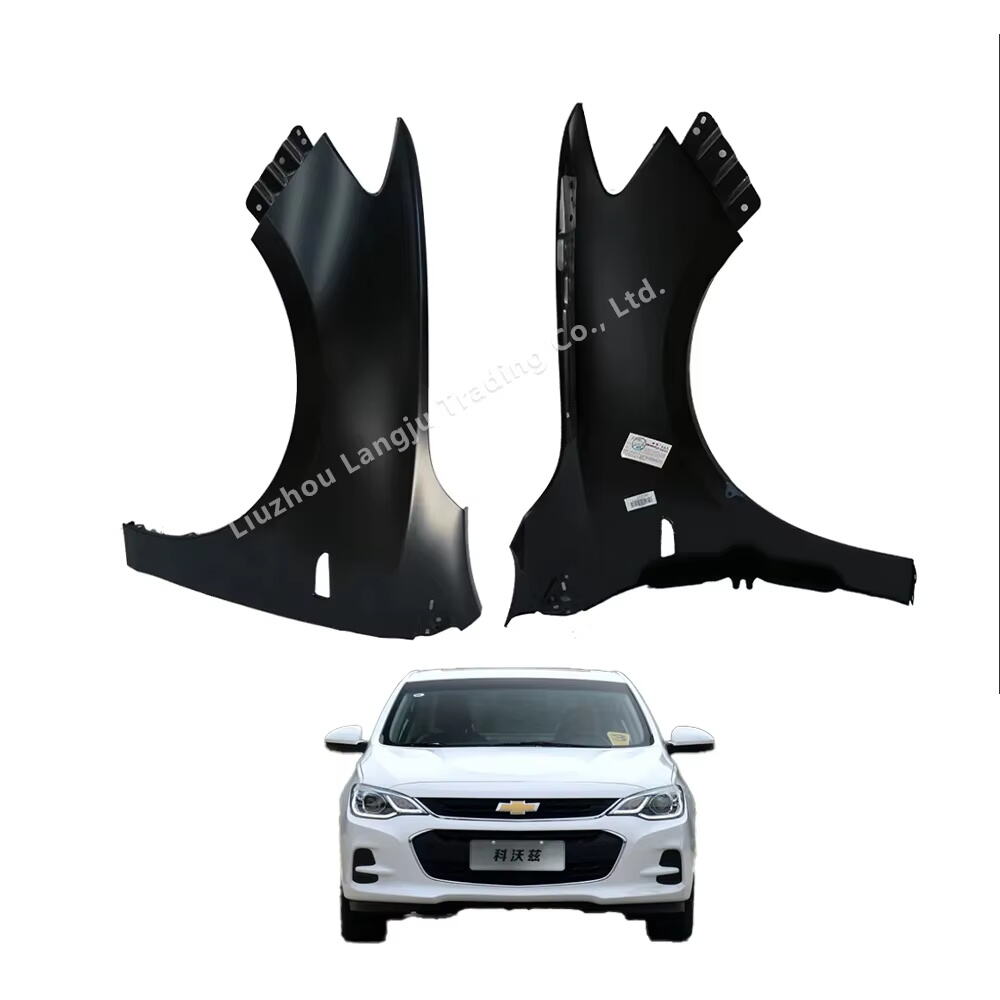Η βιώσιμη παραγωγή επικεντρώνεται στη δημιουργία εξαρτημάτων αυτοκινήτων με τρόπους που προστατεύουν το περιβάλλον, ενισχύουν την οικονομική αποδοτικότητα και υποστηρίζουν την κοινωνική ευημερία. Τονίζει τη μείωση των αποβλήτων, τη διατήρηση των πόρων και τη χρήση καινοτόμων μεθόδων για την ελαχιστοποίηση της βλάβης στον πλανήτη. Παίζετε έναν ζωτικό ρόλο στην υποστήριξη αυτών των πρακτικών επιλέγοντας Προϊόντα να κατασκευάζονται υπεύθυνα. Αυτή η προσέγγιση όχι μόνο βοηθά το περιβάλλον αλλά διασφαλίζει επίσης μακροχρόνια οφέλη για τις βιομηχανίες και τις κοινότητες. Υιοθετώντας τη βιώσιμη παραγωγή, η αυτοκινητοβιομηχανία μπορεί να αντιμετωπίσει κρίσιμες προκλήσεις ενώ ανοίγει το δρόμο για ένα πιο πράσινο μέλλον.
Οφέλη από τη βιώσιμη παραγωγή
Περιβαλλοντικά Οφέλη
Η βιώσιμη κατασκευή συμβάλλει στη μείωση των περιβαλλοντικών επιπτώσεων της παραγωγής ανταλλακτικών αυτοκινήτων. Χρησιμοποιώντας λιγότερους φυσικούς πόρους, συμβάλλετε στη διατήρηση των περιορισμένων υλικών του πλανήτη. Η ανακύκλωση και η επαναχρησιμοποίηση υλικών εμποδίζουν τη συσσώρευση απορριμμάτων στους χώρους υγειονομικής ταφής. Αυτή η προσέγγιση μειώνει επίσης τις εκπομπές αερίων του θερμοκηπίου, γεγονός που επιβραδύνει την κλιματική αλλαγή. Όταν οι κατασκευαστές υιοθετούν καθαρότερες μεθόδους παραγωγής, η ρύπανση του αέρα και του νερού μειώνεται. Υποστηρίζετε έναν πιο υγιή πλανήτη επιλέγοντας προϊόντα που παράγονται μέσω βιώσιμων πρακτικών.
Οικονομικά Οφέλη
Η βιώσιμη παραγωγή βελτιώνει την οικονομική απόδοση τόσο για τις επιχειρήσεις όσο και για τους καταναλωτές. Οι εταιρείες εξοικονομούν χρήματα επαναχρησιμοποιώντας υλικά και μειώνοντας την κατανάλωση ενέργειας. Αυτές οι εξοικονομήσεις συχνά οδηγούν σε χαμηλότερο κόστος παραγωγής, το οποίο μπορεί να οδηγήσει σε πιο προσιτά προϊόντα για εσάς. Η επένδυση σε βιώσιμες τεχνολογίες δημιουργεί νέες ευκαιρίες απασχόλησης σε βιομηχανίες όπως οι ανανεώσιμες πηγές ενέργειας και η ανακύκλωση. Η υποστήριξη αυτών των πρακτικών ενισχύει τις τοπικές οικονομίες και διασφαλίζει μακροπρόθεσμη χρηματοοικονομική σταθερότητα για τις επιχειρήσεις.
Κοινωνικά Οφέλη
Η βιώσιμη μεταποίηση προάγει καλύτερες συνθήκες εργασίας και ευημερία της κοινότητας. Υιοθετώντας ηθικές πρακτικές εργασίας, οι εταιρείες διασφαλίζουν δίκαιους μισθούς και ασφαλή περιβάλλοντα για τους εργαζόμενους. Αυτή η προσέγγιση ενθαρρύνει επίσης τις επιχειρήσεις να συνεργαστούν με τις τοπικές κοινωνίες, δημιουργώντας συνεργασίες που ωφελούν όλους. Όταν επιλέγετε προϊόντα βιώσιμα κατασκευασμένα, υποστηρίζετε την κοινωνική ευθύνη και συμβάλλετε στη βελτίωση της ποιότητας ζωής των ανθρώπων σε όλο τον κόσμο.
Βασικές Πρακτικές και Τεχνολογίες στη Βιώσιμη Μεταποίηση
Ανακύκλωση και Επαναχρησιμοποίηση Υλικών
Η ανακύκλωση και η επαναχρησιμοποίηση υλικών διαδραματίζουν ζωτικό ρόλο στη βιώσιμη παραγωγή. Μπορείτε να βοηθήσετε στη μείωση των απορριμμάτων υποστηρίζοντας εταιρείες που δίνουν προτεραιότητα σε αυτές τις πρακτικές. Οι κατασκευαστές συλλέγουν και επεξεργάζονται χρησιμοποιημένα υλικά, όπως μέταλλα και πλαστικά, για να δημιουργήσουν νέα ανταλλακτικά αυτοκινήτων. Αυτή η προσέγγιση εξοικονομεί φυσικούς πόρους και ελαχιστοποιεί την ανάγκη για εξόρυξη πρώτων υλών. Για παράδειγμα, το αλουμίνιο και ο χάλυβας από παλιά οχήματα μπορούν να ανακυκλωθούν σε νέα εξαρτήματα, μειώνοντας την κατανάλωση ενέργειας κατά την παραγωγή.
Η επαναχρησιμοποίηση υλικού επεκτείνει επίσης τη διάρκεια ζωής των πόρων. Αντί να απορρίπτουν τα υλικά που έχουν απομείνει, οι κατασκευαστές τα επαναχρησιμοποιούν για άλλες χρήσεις. Αυτή η μέθοδος μειώνει το κόστος παραγωγής και μειώνει τα απόβλητα υγειονομικής ταφής. Επιλέγοντας προϊόντα κατασκευασμένα με ανακυκλωμένα ή επαναχρησιμοποιημένα υλικά, συμβάλλετε σε ένα πιο βιώσιμο μέλλον.
Ενσωμάτωση των ανανεώσιμων πηγών ενέργειας
Η ενοποίηση των ανανεώσιμων πηγών ενέργειας μεταμορφώνει τον τρόπο με τον οποίο οι κατασκευαστές τροφοδοτούν τις εγκαταστάσεις τους. Πολλές εταιρείες χρησιμοποιούν πλέον ηλιακή, αιολική και υδροηλεκτρική ενέργεια για να μειώσουν την εξάρτησή τους από ορυκτά καύσιμα. Αυτές οι ανανεώσιμες πηγές παράγουν καθαρή ενέργεια, η οποία μειώνει τις εκπομπές αερίων του θερμοκηπίου. Όταν οι κατασκευαστές υιοθετούν ανανεώσιμες πηγές ενέργειας, δημιουργούν ένα πιο υγιεινό περιβάλλον για όλους.
Μπορείτε να υποστηρίξετε αυτή τη στροφή επιλέγοντας προϊόντα από εταιρείες που επενδύουν σε ανανεώσιμες πηγές ενέργειας. Για παράδειγμα, ορισμένοι κατασκευαστές αυτοκινήτων έχουν εγκαταστήσει ηλιακούς συλλέκτες στις εγκαταστάσεις τους για την παραγωγή ηλεκτρικής ενέργειας. Άλλοι αγοράζουν πιστώσεις για ανανεώσιμες πηγές ενέργειας για να αντισταθμίσουν το αποτύπωμά τους άνθρακα. Αυτές οι προσπάθειες καταδεικνύουν τη δέσμευση για βιωσιμότητα και εμπνέουν άλλους να ακολουθήσουν το παράδειγμά τους.
Προηγμένες τεχνολογίες παραγωγής
Οι προηγμένες τεχνολογίες κατασκευής βελτιώνουν την αποδοτικότητα και μειώνουν τα απόβλητα στις παραγωγικές διαδικασίες. Τεχνικές όπως η τρισδιάστατη εκτύπωση επιτρέπουν στους κατασκευαστές να δημιουργούν ακριβή ανταλλακτικά αυτοκινήτων με ελάχιστη χρήση υλικού. Αυτή η τεχνολογία εξαλείφει τα υπερβολικά απόβλητα και επιταχύνει τους χρόνους παραγωγής. Επωφεληθείτε από προϊόντα υψηλής ποιότητας που κατασκευάζονται με λιγότερους πόρους.
Ο αυτοματισμός και τα έξυπνα συστήματα παραγωγής ενισχύουν επίσης τη βιωσιμότητα. Αυτά τα συστήματα παρακολουθούν τη χρήση ενέργειας και βελτιστοποιούν τις διαδικασίες παραγωγής για να ελαχιστοποιήσουν τα απόβλητα. Για παράδειγμα, οι αισθητήρες μπορούν να ανιχνεύσουν ανεπάρκεια στα μηχανήματα και να προσαρμόσουν τις λειτουργίες για εξοικονόμηση ενέργειας. Υποστηρίζοντας εταιρείες που υιοθετούν προηγμένες τεχνολογίες, ενθαρρύνετε την καινοτομία και τις βιώσιμες πρακτικές στην αυτοκινητοβιομηχανία.
Η αειφόρος μεταποίηση διαδραματίζει κρίσιμο ρόλο στη μείωση της περιβαλλοντικής βλάβης, στην τόνωση της οικονομικής ανάπτυξης και στην προώθηση της κοινωνικής ευθύνης. Διασφαλίζει ότι η αυτοκινητοβιομηχανία μπορεί να ανταποκριθεί στις σημερινές ανάγκες χωρίς να θέτει σε κίνδυνο τις μελλοντικές γενιές. Οι συλλογικές προσπάθειες από κατασκευαστές, προμηθευτές και καταναλωτές είναι απαραίτητες για την επίτευξη παγκόσμιων στόχων βιωσιμότητας. Επιλέγοντας υπεύθυνα προϊόντα, συμβάλλετε σε έναν καθαρότερο πλανήτη και μια ισχυρότερη οικονομία. Οι ενέργειές σας εμπνέουν τη βιομηχανία να υιοθετήσει πιο πράσινες πρακτικές και να δημιουργήσει ένα καλύτερο μέλλον για όλους.

